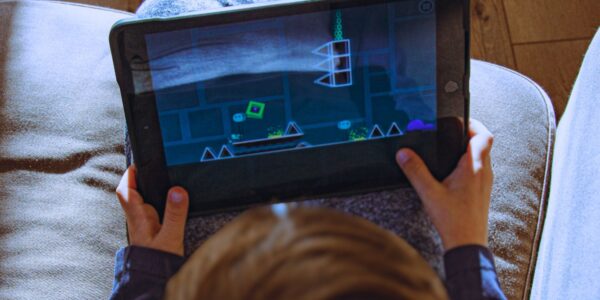In another instalment of things-we-already-suspected-were-true, Aussies researchers have put together a comprehensive analysis that proves, for the first time, that using electronic screens for hours on end makes you less intelligent.
Macquarie University psychologists have found that “problematic screen use” impairs a number of cognitive processes after compiling all of the available evidence on its impacts. Notably, excessive screen use makes concentration more difficult, impulse control worse, and has negative effects on the ability to plan, organise, and problem-solve.
The findings come from a meta-analysis, published in Neuropsychology Review, overviewing more than 30 studies of people with “disordered screen use.” That includes excessive gaming, internet browsing, or using social media or smartphones to the degree that it results in negative effects.
Those negative effects mean a deterioration in mental health, poor performance at school or work, social isolation, relationship problems, and neglect of personal health or hygiene. Using screens to that level of excess shares similarities with behavioural addictions like problem gambling, the study says, with some people even going on to develop dependency issues similar to that seen with other addictions.
Thankfully, most people who use screens aren’t likely to suffer these effects, at least not to the degree being talked about here. Specifically, it’s social media and gaming that appear most problematic. These have both been shown to spike reward pathways in the brain in similar ways to illicit drugs like cocaine.
The researchers say that many people are at risk if they spend more than a few hours looking at these kinds of exciting, dopamine-inducing content each day.
“A 2021 study of recreational screen use found teenagers were averaging eight hours and 39 minutes a day. Most guidelines recommend no more than two to three hours,” Psychology Professor Wayne Warburton has said.
“Clearly, this much screen use is cutting into time better spent sleeping, exploring, exercising, and socialising face-to-face with friends and family, so it is entirely reasonable to think that a large percentage of our young people could be at risk of crossing the line into problematic and even disordered screen use.”
The researchers compare the effects of disordered screen use on mild traumatic brain injury owing to its cognitive impairment effects.
In the studies looked at, most of them were examinations of gaming, while a few were on internet use in general and one each on smartphone and social media use.
Gaming disorders are currently the only type of problematic screen use that is formally classified as a mental health disorder. It was ratified under the World Health Organisation’s International Classification of Disease in 2019.
Since social media is a relative newcomer to the scene, there have been fewer studies done on its cognitive impacts. However, researchers are saying that this new evidence suggests there may not be much distinction.
“It is clear to us that no matter what type of screen is involved, the disorder and its impacts look the same,” Warburton said.
“Our review of the effects of disordered screen use on cognitive function supports this, with the same impacts recorded in studies looking at gaming and in excessive use of the internet, social media, and smartphones. Gaming is simply the one that’s been around the longest.”
Young people appear to be the most at risk of developing disordered screen use problems, as previous research has shown. The paper’s lead author, neuropsychology researcher Mic Moshel has said that young people’s screen use should be treated in the same way you would treat brain injury.
“The effects of traumatic brain injury are well known, and cognitive remediation is one of the first things you do for a child in these circumstances,” Moshel said.
“The difference with disordered screen use is that is not yet properly recognised as a cause of cognitive impairment. Often it is not even recognised that a child has disordered screen use in the first place.”
Disordered screen use is thought to be a growing problem, exacerbated by the pandemic. Young people in particular may have spent years indoors with little to do except stare at screens. One post-COVID study in Germany found that around 4% of young people met the criteria for the condition while Macquarie’s study estimates that 3% of young people in Australia meet the same. Worldwide, between 8 and 13% of people are estimated to have some kind of problematic screen use.
Despite the claims of the study, previous research has also found that screen time can be a good thing. A 2019 from the Universities of Oxford, Cambridge, and Cardiff found that children who spend one two hours using screens had higher levels of social and emotional well-being.
“Calls for blanket technology bans and age restrictions on technology access do not constitute evidence-based or indeed ethical advice, particularly as screen usage in some cases has a net positive impact,” said Professor Andrew Przybylski, Director of Research at the Oxford Internet Institute at the time.
Phone and personal computing technology is relatively new and we’re still figuring out exactly what impact it has on our physical and mental health. In light of these most recent findings, researchers say that personal assessment and an awareness of the potential dangers are crucial.
“With so much of our work and leisure time based around screens, it has never been more important to assess their impact on cognitive functioning and overall wellbeing,” Moshel said.
Related: Technology Can Make Our Lives Worse, But It Doesn’t Have to
Related: How to Use Technology More Mindfully
Read more stories from The Latch and subscribe to our email newsletter.







